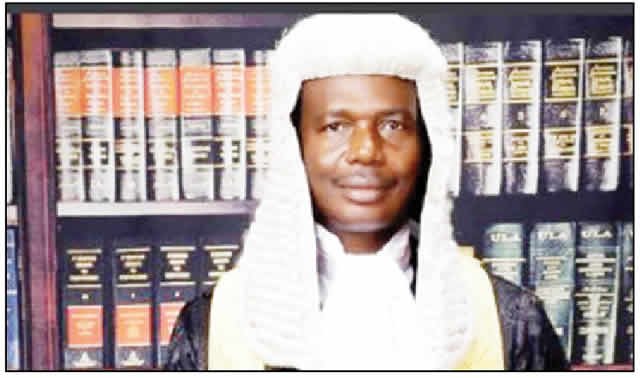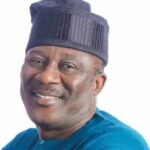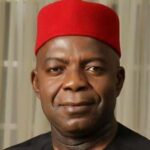
The practice of associations or groups buying expression of interest and nomination forms for aspirants is unconstitutional, lawyers have said.
According to them, such aspirants risk disqualification.
A Senior Advocate of Nigeria, Mr. Ebun-Olu Adegboruwa, and popular Lagos-based lawyer, Mr Jiti Ogunye, argued that by virtue of Section 221 of the 1999 constitution, associations are not permitted to contribute to the election expenses of any candidate in an election.
In the race for the presidency, for example, some groups reportedly bought the N100m expression of interest and nomination forms for former President Goodluck Jonathan; a national leader of the All Progressives Congress, Asiwaju Bola Tinubu; Governor of the Central Bank of Nigeria, Godwin Emefiele; President of the African Development Bank, Dr Akinwumi Adesina, and several others.
Adesina later said he wasn’t interested in the contest.
In the opposition Peoples Democratic Party, various groups also bought the N40m presidential forms for former Senate President, Dr Bukola Saraki; Sokoto State Governor, Aminu Tambuwal; and his counterpart in Rivers State, Nyesom Wike, among several others.
In the state and National Assembly elections also, various groups similarly bought forms for different aspirants.
However, Section 221 of the 1999 Constitution (as amended) states that: “No association, other than a political party, shall canvass for votes for any candidate at any election or contribute to the funds of any political party or to the election expenses of any candidate at an election.”
The succeeding Section 222 notes that no association by whatever name could function as a party and could not contribute to the election expenses of any candidate.
According to lawyers, while politicians flaunt buying of forms for them as a symbol of acceptance and wide support base, they are in clear breach of the constitution.
Speaking on the interpretation of Section 221, Ogunye explained that the constitution didn’t contemplate the practice, which has become commonplace, but that political parties, the Independent National Electoral Commission, the Attorney General of the Federation and other aspirants could take action against the breach of the constitution.
He said, “The constitution didn’t contemplate this bizarre phenomenon that has now been accentuated; that people would come together to buy forms for people.
“Let’s not forget; it started before now. In 2014, we were told some people contributed money to buy forms for Muhammadu Buhari to contest the election. If applied, Section 221 forbids that practice.
“Political parties owe a duty to the constitution and the Electoral Act, and if they see that some of their prospective candidates violate the law, they can impose sanctions.
“INEC can also call the attention of political parties to it and ultimately take steps to enforce the constitution against any aspirant or candidate that has violated this provision.”
Ogunye said though people tend to take advantage of the absence of a sanction complement for the section in the constitution because the court had ruled that INEC could not unilaterally disqualify a candidate.
He said the commission could, however, go to court to seek an order to disqualify erring candidates.
“INEC cannot stand aloof and allow the provisions of the constitution that are sacred and sacrosanct to be trampled upon,” he added.
He added that a dutiful Attorney General of the Federation, who is a bulwark against disregard for the rule of law, could apprehend the oddity and approach the court to obtain an order and have such aspirants or candidates barred for violating the constitution.
He added, “The other way this can be sanctioned is for co-aspirants to challenge the aspirant who violated that section.”
On his part, Adegboruwa explained that the constitution expects every aspirant to take responsibility for their participation for transparency, adding that buying forms through proxies was enough grounds for disqualification.
He added, “All those narratives of groups contributing money to buy forms are contrary to the constitution and this issue can be raised by either the aspirants’ opponents or concerned Nigerians.
“In this particular context, any candidate who did not use their own name to purchase the forms by themselves or through their accredited representatives but through associations is doing so at their peril, because the constitution does not allow participation by proxy.
“I believe that at the appropriate time, the law will be brought to bear on such persons. The only prayer is that they should not win the election, because if they do, it’s enough grounds for election petitions tribunal to nullify that candidate’s victory. It can even be argued that there was no candidate in the first place.
“So, it’s grounds for disqualification or to ask that the election be nullified. However, the law does not allow INEC to disqualify any candidate, except the court. Other candidates can also take it up.”
Copyright PUNCH.
All rights reserved. This material, and other digital content on this website, may not be reproduced, published, broadcast, rewritten or redistributed in whole or in part without prior express written permission from PUNCH.
Contact: [email protected]





